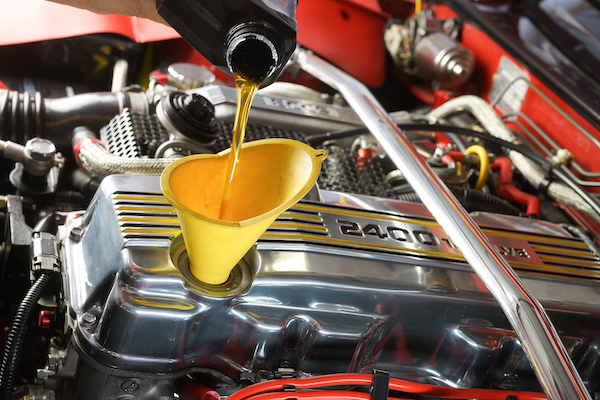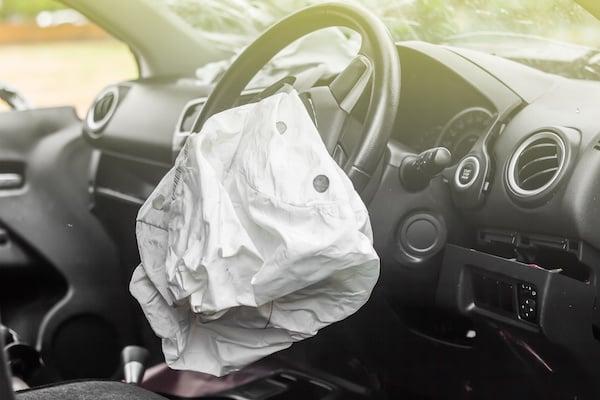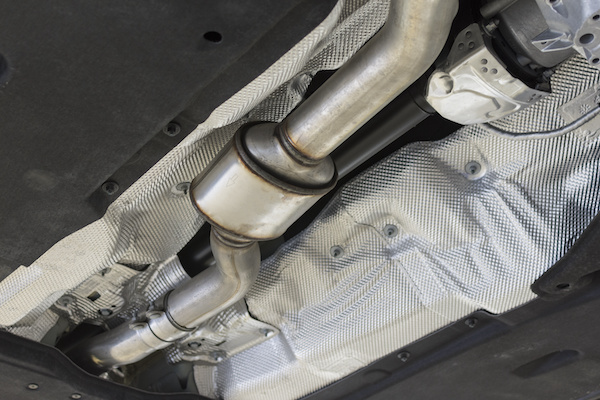Posted on 12/21/2021

The last thing you want on a road trip is your car breaking down on the side of the road, in the middle of nowhere, with no auto repair shop in sight. Even well-maintained motor vehicles can develop mechanical problems on long trips. The extra miles place more strain on the car and make it more liable to break down. Getting your car checked before a long trip should be standard practice for all drivers. What Should I Get Inspected? Tires Tires are often the most overlooked part of a car. Have your tires checked for slow punctures and bald treads? If the treads look worn out, get new ones. Get the wheels properly aligned. Also, check the air pressure, as tire inflation affects fuel economy. Suspension and Steering After the tires, check the steering and suspension. Worn out or loose suspension affects the quality of your ride and wears out tires prematurely. The car may rattle or bounce as a result. Hours spent out on the road should be smooth and comfortable. To a ... read more
Posted on 11/18/2021

With winter soon on its way to Kansas City, there are several things every car owner should know about car care. From system inspections to tire checks, cold weather can strike and do a number on your car's parts. However, most people don't talk about the dangers of the things you leave in your vehicle. We are going to go over several things you shouldn't leave in your vehicle this winter! Smartphones and Other Tech It's not uncommon to forget your cell phone or laptop in your car overnight. If you happen to leave any tech device in your car during the winter, it can seriously harm its lithium-ion battery. As temperatures drop, your batteries, including your car battery, can drain a lot quicker. And the cold weather can completely kill it if it's that old. Beyond the battery, the cold can also affect your LCD screens. Prescription Medications Whether it's prescriptions or over-the-counter meds, you should never store medicinal items in your car during winter ... read more
Posted on 10/12/2021

Oil changes are the #1 most important maintenance service that most vehicles have to undergo. Motor oil plays the vital function of lubricating your engine parts and absorbing/transferring excess heat away from the engine. Though all engine oil serves this particular purpose, there are three kinds of lube you can put in your car: conventional, synthetic, and semi-synthetic. Conventional Oil Conventional oil is the most basic form of engine oil, and it has been around for decades. This kind of oil is the cheapest option of the three, and it is typically used by older-model automobiles with traditional engine configurations. The change interval for conventional lube is the shortest of the three (approximately 3,000 - 5,000 miles). Synthetic Oil Synthetic oil is the newer type of oil with additives. It is chemically made in a lab to be more consistent in the formulation. It is super effective at limiting friction and resisting high temperatures. Its chemical characteristics can ... read more
Posted on 9/15/2021

Most of us don't even give the airbags in our vehicles a second thought because we rarely have to see them or use them. But how have airbags affected the automobile industry and society as a whole? According to the National Highway Traffic Safety Administration, airbags have spared approximately 40,000 lives from 1987 to 2012. As technology continues to improve airbags, this number will undoubtedly continue to grow. Who Invented It? The airbag concept was initially created by Walter Linderer from Germany and patented in 1951. It wasn't even coined as an airbag back then, but it was instead called a safety cushion. Unfortunately, Linderer's design of inflating the airbag didn't work well enough to inflate it completely. Another poor quality of the airbag was that it required a signal from the driver to inflate and initiate a response. Working off Linderer's approach, American John Hetrick began his design and patented it in 1953. He decided t ... read more
Posted on 8/11/2021

The catalytic converter is one of the most crucial parts of your exhaust system. You can find this part between the muffler and the engine, and its purpose is to "convert" harmful fumes (such as carbon monoxide) from your car engine into non-polluted air. The converter ensures that the emissions that are discharged from the muffler are safer to breathe in. What Problems Can Arise From Your Catalytic Converter? The catalytic converter is a resilient vehicle part that will last for as long as ten years. Nevertheless, like any other component, it can become clogged, contaminated, overheated, and broken. If this were to happen to your converter, it could lead to a slow and whiny engine. The most common virus for a catalytic converter is leaded gasoline. Luckily, this type of gasoline is no longer used by most people in the United States. However, the catalytic converter can become corrupted by other things: coolant leaks, combustion, a faulty head-gasket, engine ... read more